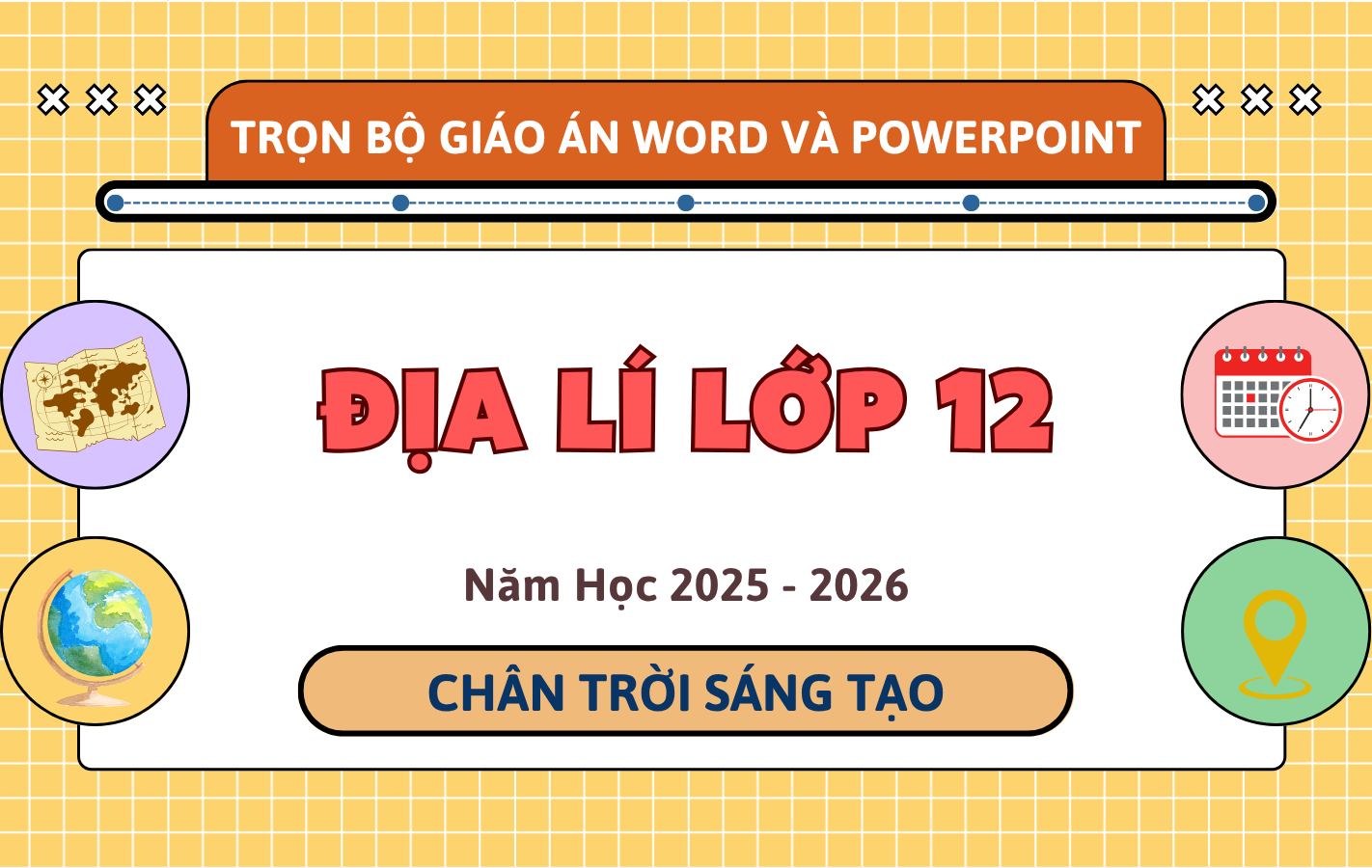Câu hỏi:
Read the following passage about the A Complex Dialogue Between Eras and mark the letter A, B, C or D on your answer sheet to indicate the best answer to each of the following questions from 31 to 40.
[I]The "generation gap" refers to the growing divergence between the values, attitudes, and behaviors of younger and older generations. [II]This divide is often marked by differences in perspectives on technology, work ethics, social issues, and cultural norms. While this gap can sometimes lead to friction and misunderstanding, [III]. The rapid advancements in technology, particularly in the digital realm, have become one of the most significant forces stoking the flames of this divide. [IV]
Younger generations, often labeled as "digital natives," are immersed in a world dominated by social media, constant connectivity, and digital tools. These elements shape their worldview, emphasizing individualism, instant communication, and a fast-paced lifestyle. In contrast, older generations, who grew up in more analog environments, may view such rapid changes with skepticism. The use of technology in daily life can sometimes appear overwhelming or intrusive to them, which can cause generational misunderstandings.
However, despite these challenges, the generation gap is not inherently destructive. It can encourage cross-generational collaboration, where each generation offers valuable insights. For instance, younger people can bring fresh perspectives and technological expertise, while older generations can impart wisdom, experience, and traditional knowledge. Embracing both perspectives can lead to the creation of a more balanced, innovative, and sustainable society.
Ultimately, the generation gap should not be seen as a divide, but rather as a dynamic exchange that can enrich both generations, enabling them to learn from each other and adapt to the changing world together.
The word “their” in paragraph 2 refers to ________.
Đáp án đúng: D
Đáp án đúng là: D
Giải thích:
A. Technological tools: Từ "their" không thể ám chỉ "công cụ công nghệ", vì chúng là đối tượng không có chủ ngữ sở hữu.
B. Social media: Mặc dù mạng xã hội là một phần của "elements", nhưng câu này đang nói về thế hệ người sử dụng những yếu tố này, tức là thế hệ trẻ.
C. Older generations: Câu này không phù hợp vì "older generations" không phải là đối tượng đang được mô tả trong câu đó.
D. Younger generations: Đây là đáp án chính xác vì những yếu tố công nghệ và mạng xã hội đang ảnh hưởng đến thế hệ trẻ, tạo nên cách nhìn nhận và lối sống của họ.
Câu hỏi này thuộc đề thi trắc nghiệm dưới đây, bấm vào Bắt đầu thi để làm toàn bài
Bộ Đề Kiểm Tra Học Kì I - Tiếng Anh 11 - Global Success - Bộ Đề 01 giúp học sinh ôn tập toàn bộ nội dung trọng tâm của chương trình Tiếng Anh 11 theo sách giáo khoa Global Success trong học kì I, bao gồm từ vựng, ngữ pháp, kỹ năng đọc hiểu và viết. Câu hỏi được biên soạn theo cấu trúc đề kiểm tra hiện hành, phù hợp yêu cầu chương trình mới. Đề có kèm đáp án và gợi ý hướng làm, hỗ trợ học sinh tự đánh giá năng lực và chuẩn bị tốt cho bài kiểm tra cuối kì.
Câu hỏi liên quan
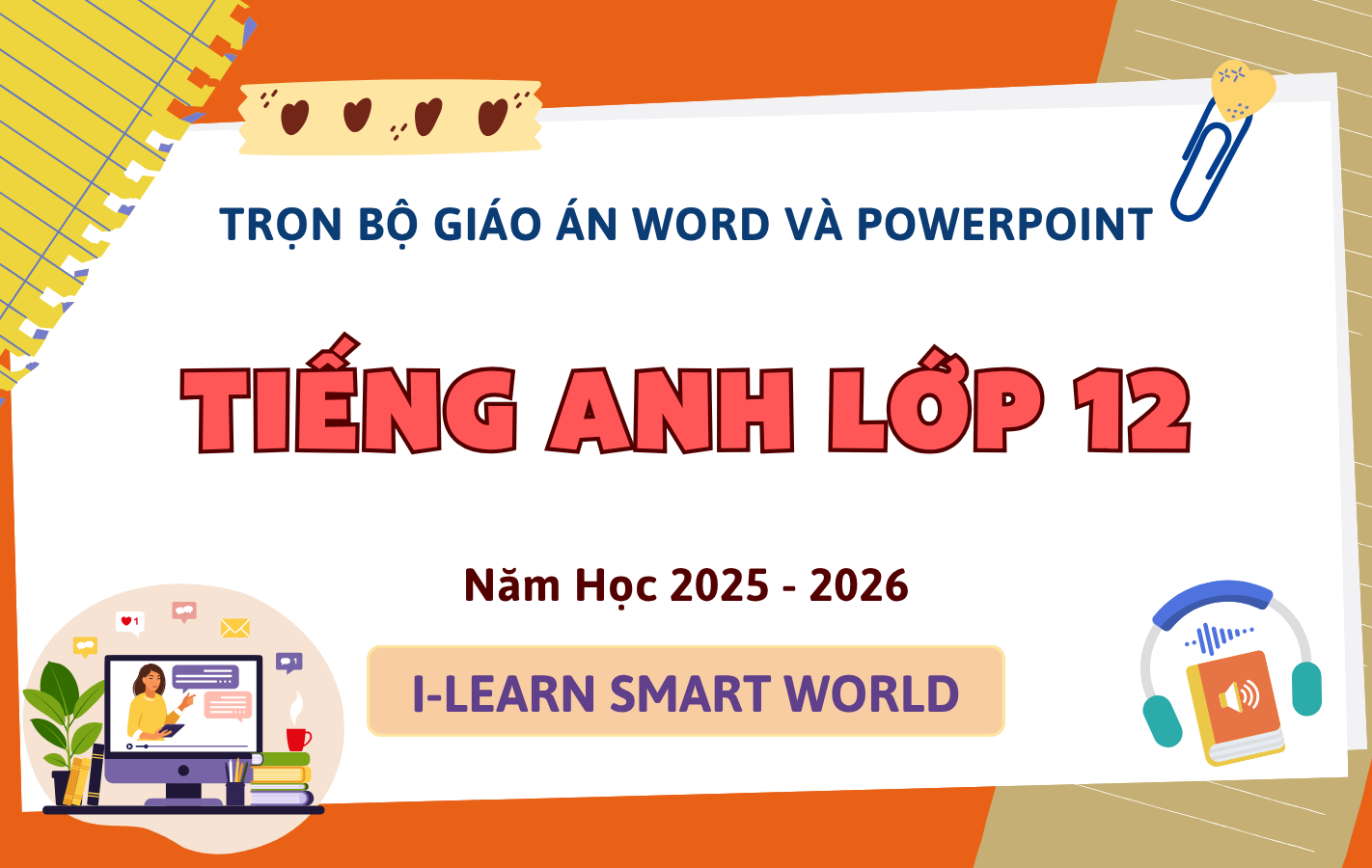
Trọn Bộ Giáo Án Word & PowerPoint Tiếng Anh 12 – I-Learn Smart World – Năm Học 2025-2026
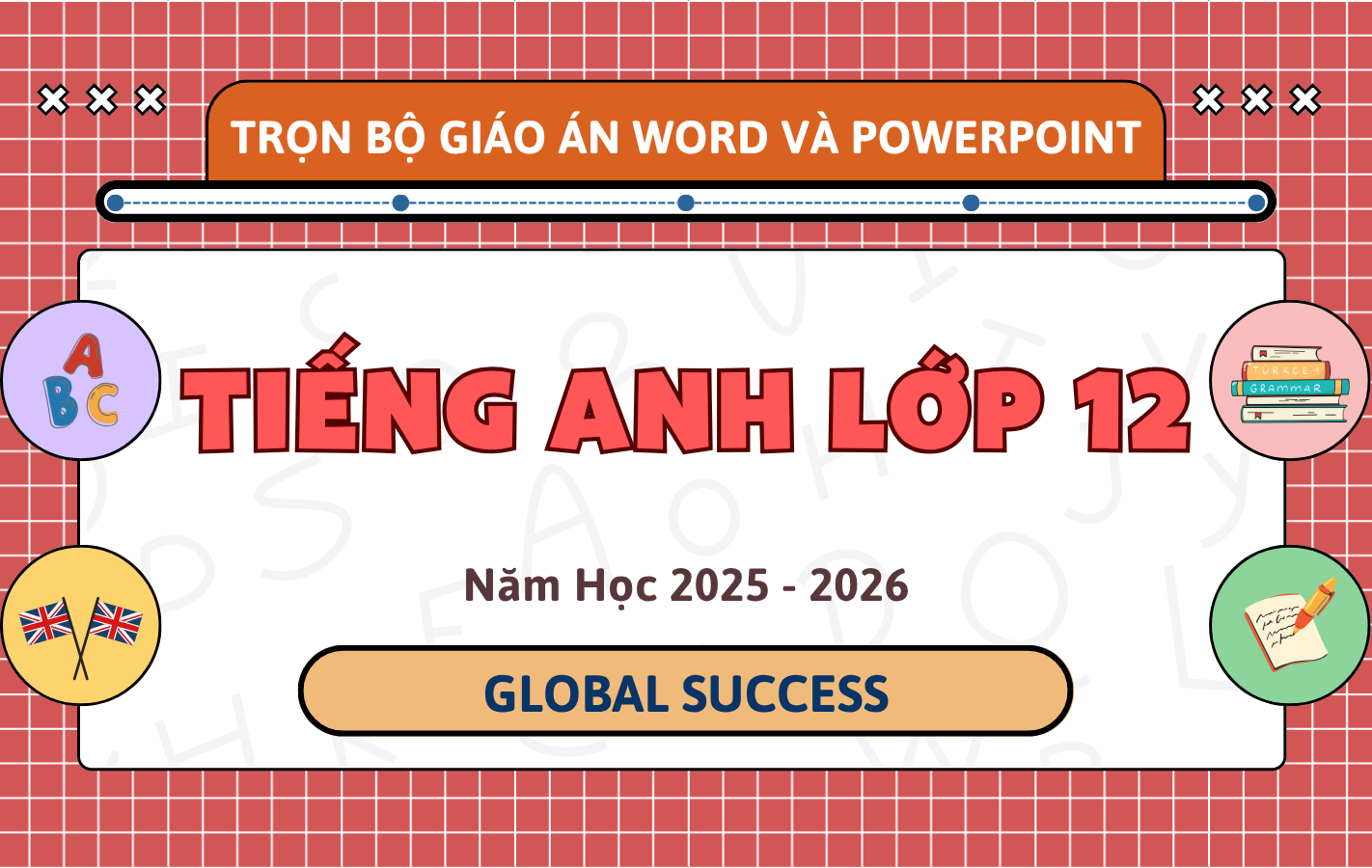
Trọn Bộ Giáo Án Word & PowerPoint Tiếng Anh 12 – Global Success – Năm Học 2025-2026
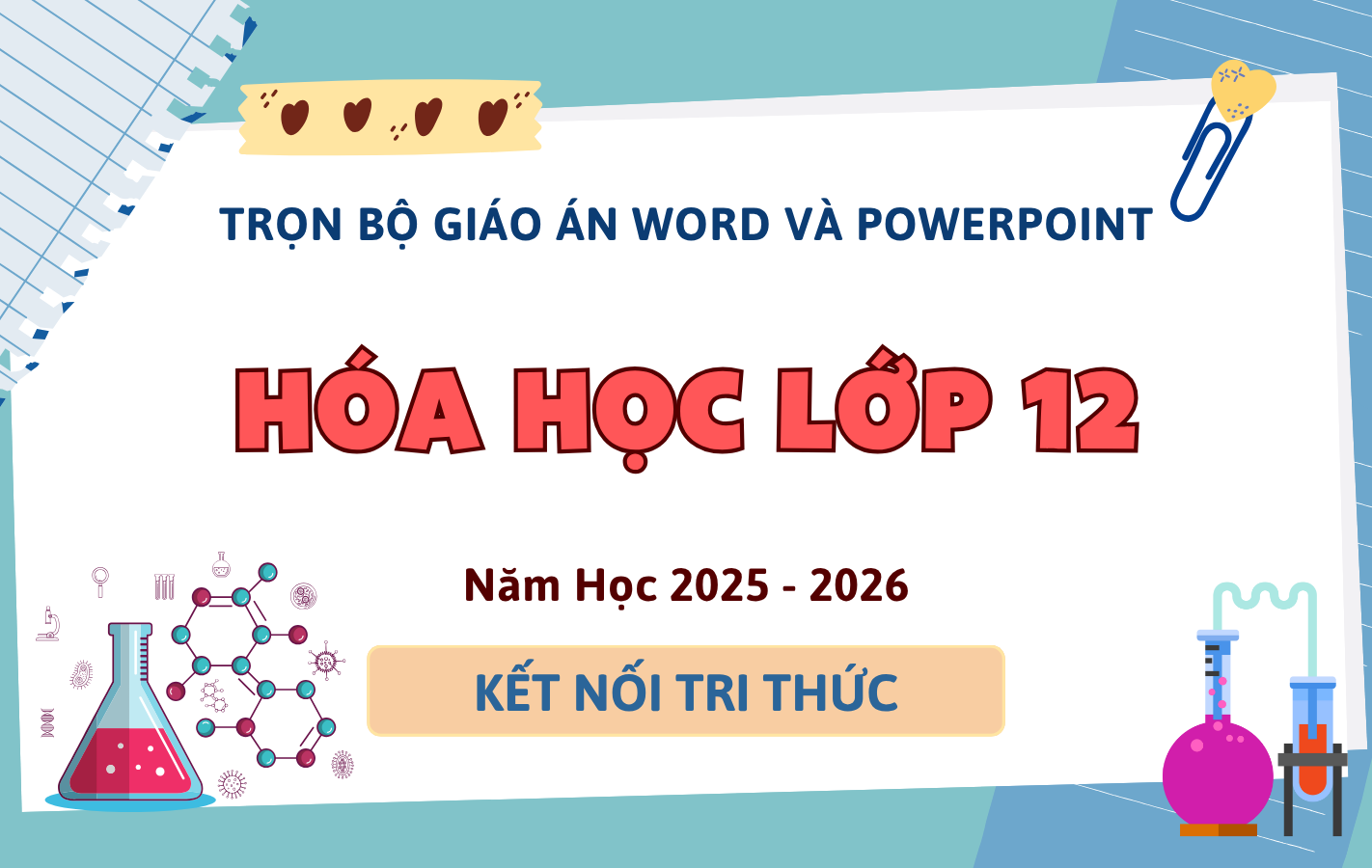
Trọn Bộ Giáo Án Word & PowerPoint Hóa Học 12 – Kết Nối Tri Thức – Năm Học 2025-2026
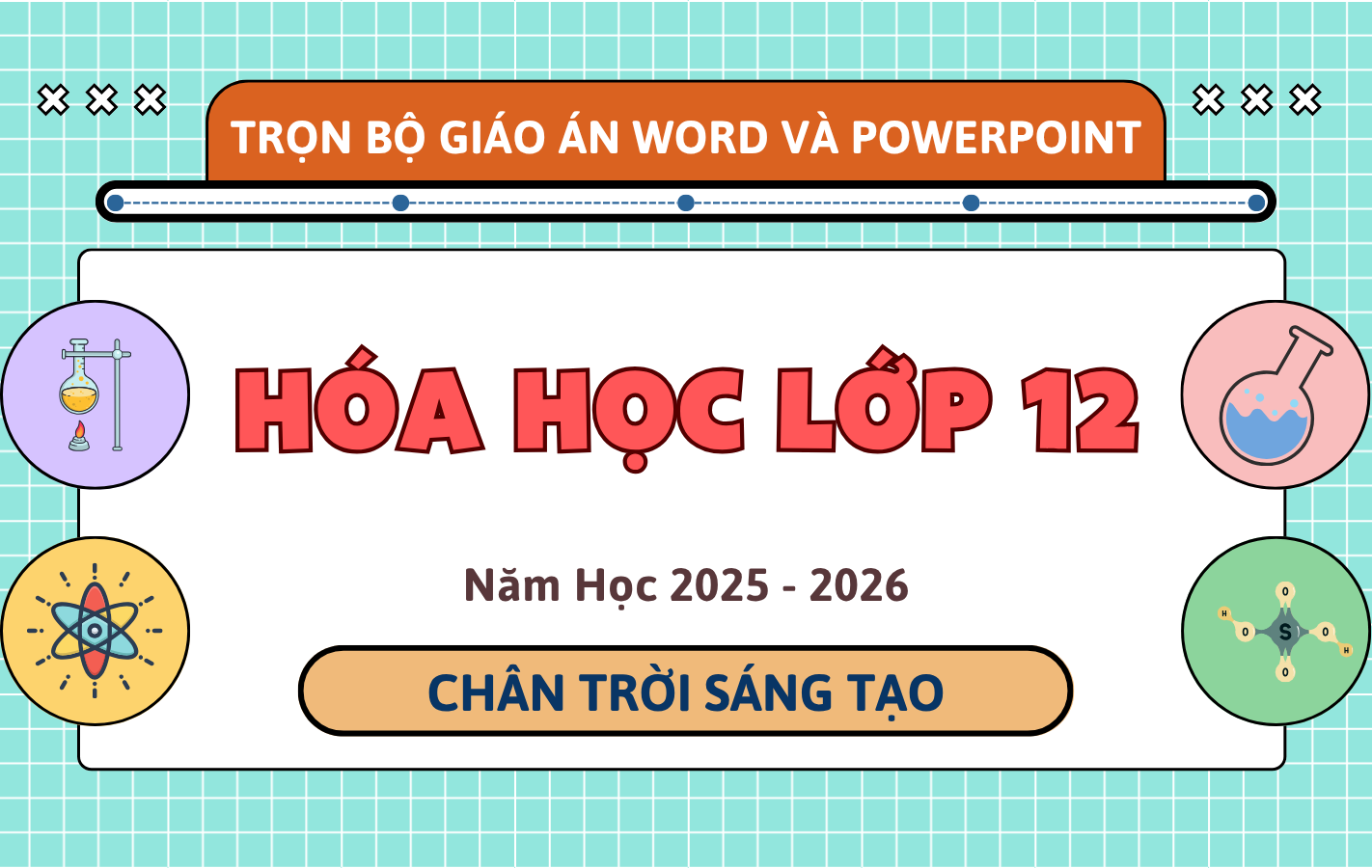
Trọn Bộ Giáo Án Word & PowerPoint Hóa Học 12 – Chân Trời Sáng Tạo – Năm Học 2025-2026
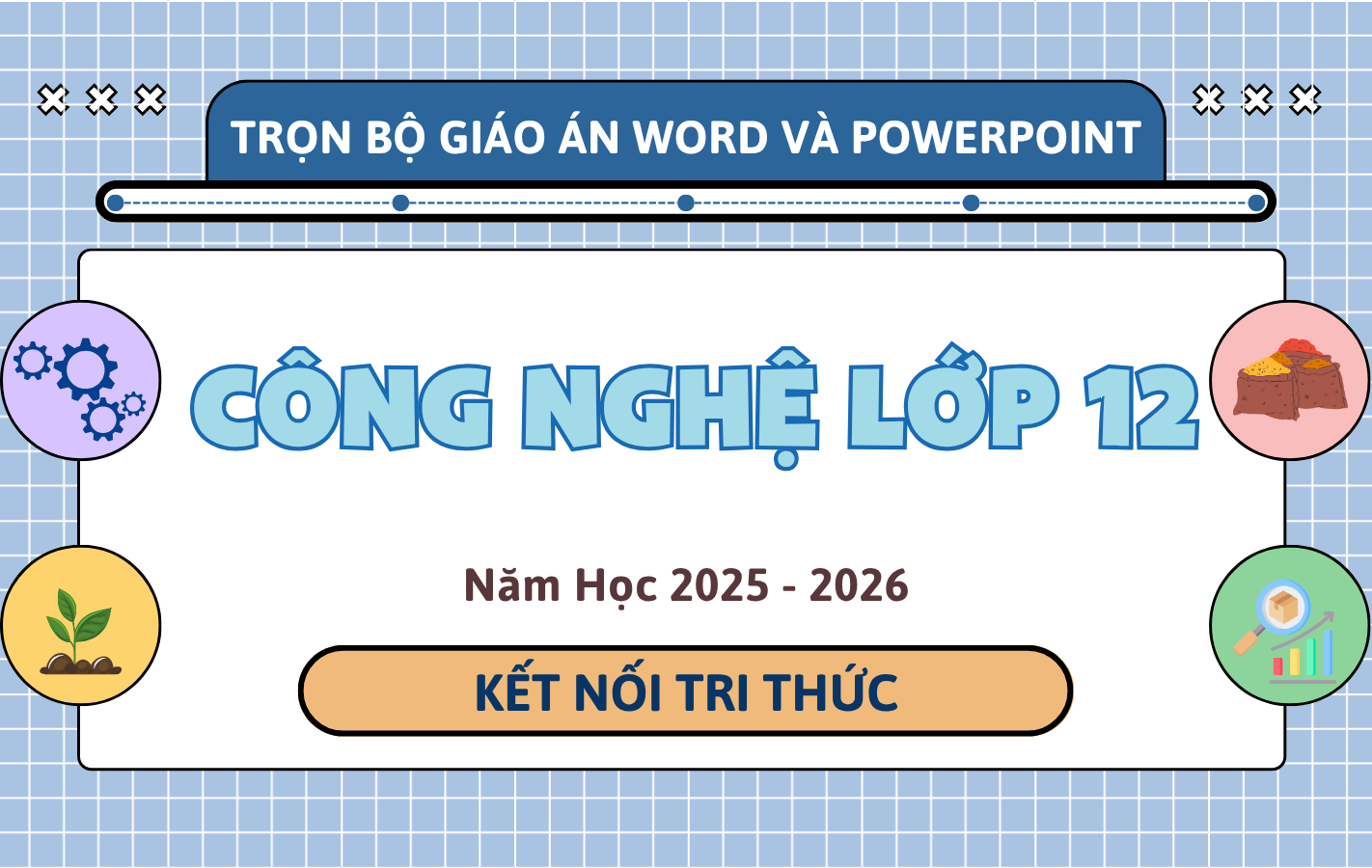
Trọn Bộ Giáo Án Word & PowerPoint Công Nghệ 12 – Kết Nối Tri Thức – Năm Học 2025-2026
